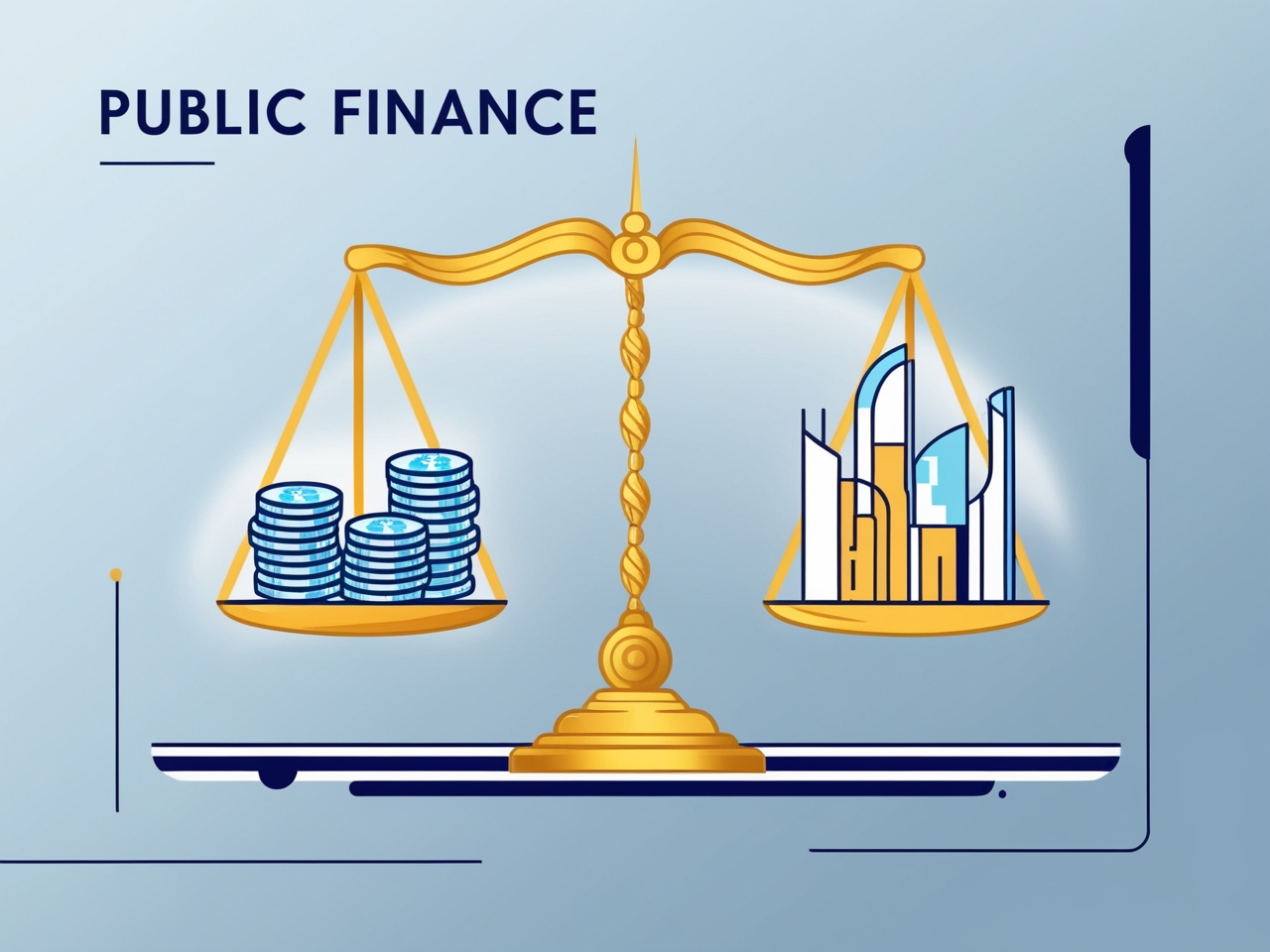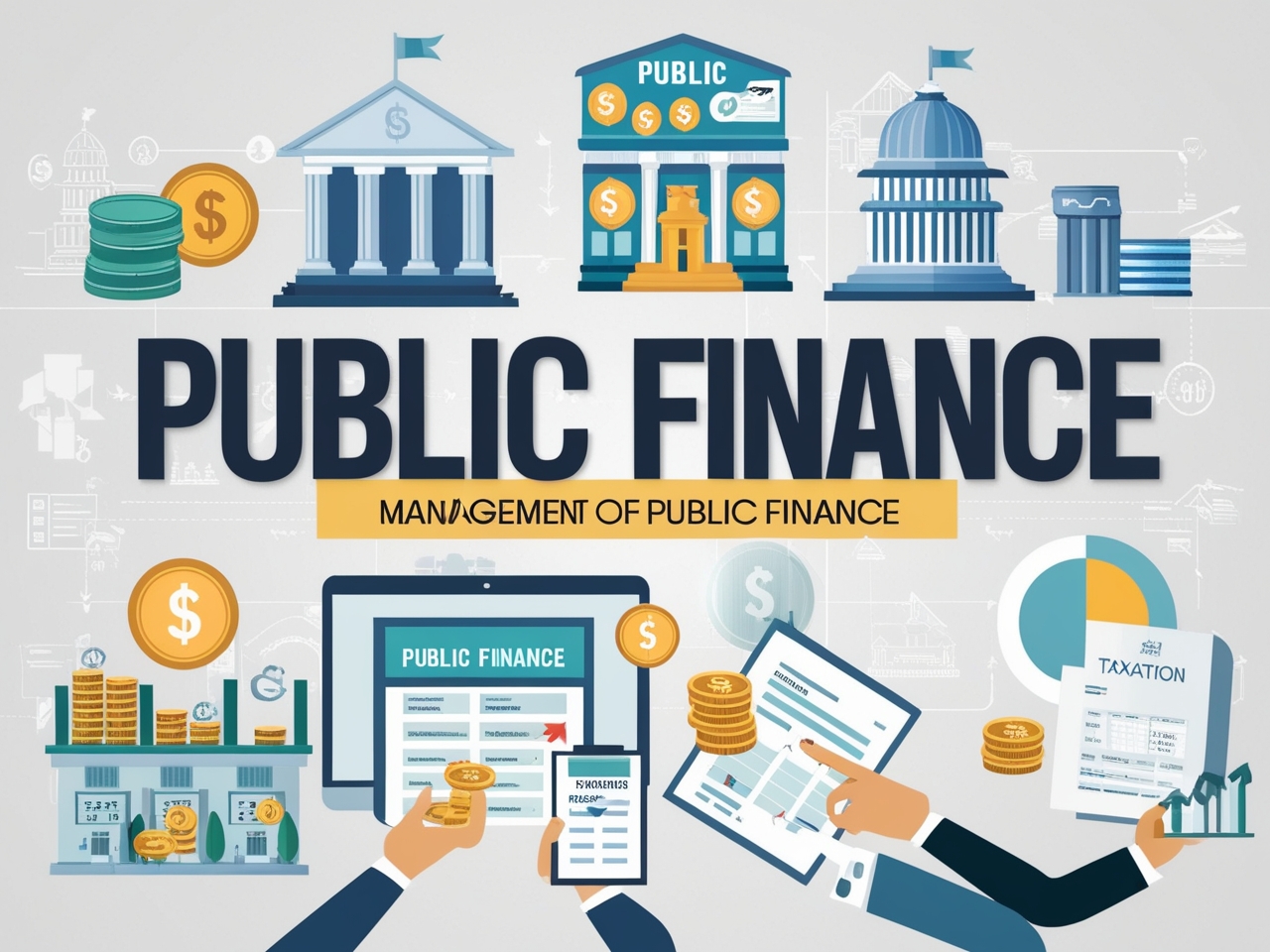Introduction:
Public finance refers to the management of government revenue, expenditure, and debt. It deals with how governments raise money (taxes and other revenues), how they spend it (on services such as health care, education, and defense), and how they manage debt. The bottom line is that public finance plays a key role in ensuring that governments can function effectively and meet the needs of their citizens.
In this article, we will define public finance in simple terms, breaking down its main components, why they are important, and how they affect our daily lives.
1. What is public finance?
Public finance is the study of how a government manages its financial resources. It mainly deals with three main areas:
Revenue: This is the money that a government collects, primarily through taxes, but also from other sources such as fees, charges, and loans.
Expenditure: This is the money that a government spends on providing public goods and services such as roads, education, health and defence.
Debt: Governments sometimes have to borrow money to meet their spending needs, especially when revenue is insufficient. Public finances also include managing this debt and ensuring that the government does not borrow too much.
2. Sources of government revenue
Governments generate revenue from a variety of sources. The main ones are:
Taxes: Taxes are the main source of government revenue. They can be direct taxes (such as income tax and corporate tax) or indirect taxes (such as sales tax and value-added tax).
Loans: Governments sometimes borrow money in the form of bonds. This is like a loan from citizens or financial institutions, and must be repaid over time.
Grants and assistance: Some governments receive financial assistance from other countries or international organisations to support their development goals.
Profits from state-owned enterprises: Some governments own companies (such as state banks, oil companies, etc.) and make a profit from them.

3. Public spending
Once a government has collected revenue, it must spend this money wisely. Expenditure can be divided into two types:
Capital spending: refers to spending on long-term projects, such as infrastructure development (building roads, bridges, airports) or investments in technology, education, etc.
Revenue spending: This is money spent on current, day-to-day expenses, such as salaries of government employees, benefits, pensions, and social services.
Why is public spending important?
Public spending affects the economy and society by creating jobs, supporting businesses, and improving the quality of life of citizens. For example, spending on education leads to a more skilled workforce, while spending on health care improves the overall well-being of the population.
4. Government Debt and Indebtedness
In some cases, governments need to borrow money to cover their expenses, especially if their expenses exceed the revenue they collect. This debt is usually financed by issuing bonds, which are bought by investors.
Why do governments borrow?
- To finance long-term projects (such as building infrastructure).
- To manage short-term budget deficits (when they need money now but expect to have more revenue in the future).
- To stimulate the economy during times of economic downturn by investing in public projects.
Debt Management A government must carefully manage its debt to ensure that it does not borrow too much, which can lead to financial distress. Too much debt can lead to high interest payments and reduce the government’s ability to spend on essential services.
5. Why are public finances important?
Public finances are important for several reasons:
Economic stability: By managing a country’s wealth, a government can influence economic growth and stability. Good public finance management helps to prevent inflation, reduce unemployment and promote economic growth.
Welfare: Governments use public finances to ensure social well-being by providing essential services such as health, education and social welfare programmes. This ensures that the basic needs of all citizens, especially the poor, are met.
Public investment: Well-managed public finances allow governments to invest in infrastructure, such as roads, hospitals, schools and public transport, which are essential for economic development and improving the quality of life.
Redistribution of wealth: Through taxes and social welfare programmes, governments can reduce economic inequality by redistributing wealth from the richest to the poorest.

6. Challenges in Public Finance
While managing public finances is important, it can be a challenge for governments. Some of the key challenges include:
Budget deficit: A budget deficit occurs when a government spends more than it takes in. Governments must find ways to finance these deficits, often by borrowing, which can lead to rising debt levels.
Inflation: If governments print too much money to support their spending, it can lead to inflation, where the value of money decreases and prices rise.
Balancing priorities: Governments need to balance spending across sectors such as education, health and defence. It can be difficult to prioritise needs, especially when resources are scarce.
Debt management: Managing debt in a way that does not harm economic growth is a delicate task. Governments need to ensure that they can service their debts without affecting public services or economic stability.
7. The role of government in your life
You may not realize it, but public finances affect you every day. Here’s how:
Taxes: Taxes pay for public goods and services like roads, police, and healthcare. The amount you pay in taxes depends on your income and the country’s tax policies.
Public services: From the school your children attend to the health care you receive, many of these services are funded by the government.
Economic policies: Government fiscal policies (spending, taxes, and borrowing decisions) can influence interest rates, inflation, and employment opportunities, which in turn affect your finances.
Social benefits: If you receive government assistance, such as unemployment benefits, or rely on publicly funded health care, you are benefiting from government funds.
8. Conclusion
Public finances are an important part of any country’s economy. They involve the management of government revenues, expenditures, and debts to ensure economic stability and meet the needs of citizens. By understanding how public finances work, we can better appreciate the role of government in our lives and how it influences our economy, our well-being, and our overall quality of life.







